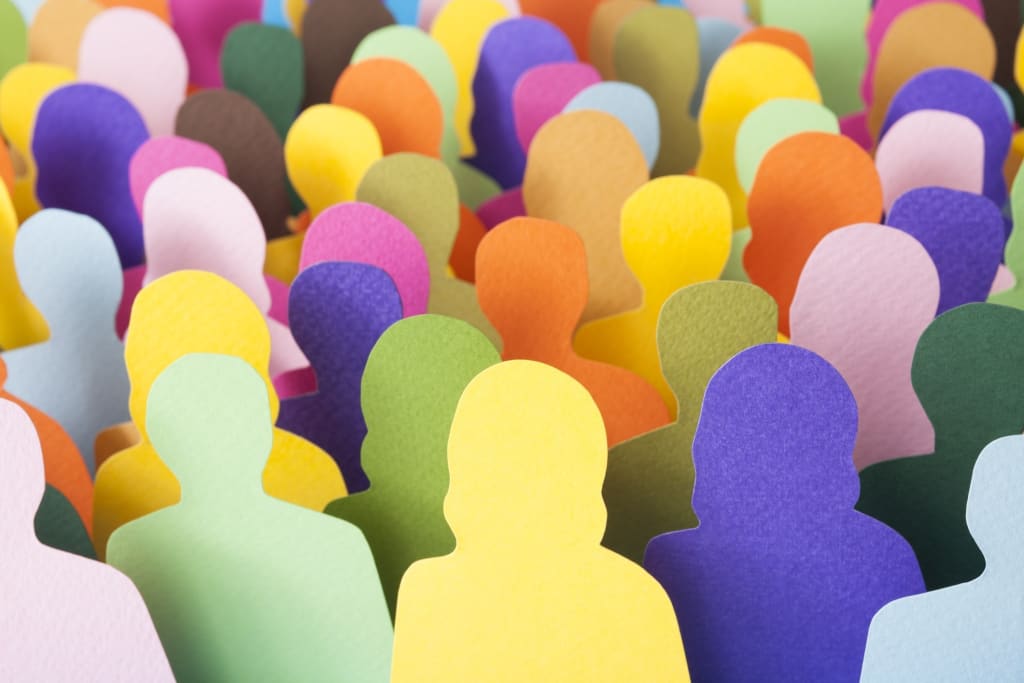Has the Science Behind Gender Dysphoria Been Discovered?
There could be a genetic component to gender dysphoria

Do transgender men and women carry genes that influence their gender identity? That's the basis of a new study by scientists from Augusta University in Georgia, who believe that there is genetic component to gender dysphoria—a condition where a person feels stress & anxiety due to a mis-match between their biological gender and their gender identity.
Gender dysphoria was previously believed to be a purely psychological condition, but this study suggests that it could in fact be part of a person's DNA.
The findings would support the long-standing claims of trans rights campaigners—that being transgender is down to fundamental differences in a person's brain chemistry—and that it's not a mental illness or a mere lifestyle choice.
Genetic variation
In the study conducted in 2018, 4 female-to-male and 16 male-to-female transgender people were subjected to a DNA test so that scientists could look for genetic variants that were common in these groups. 30 were discovered, including 9 present in genes known to be involved in the growth of brain cells or the production of sex hormones such as oestrogen and testosterone.
The findings were presented at the Society for Reproductive Investigation in San Diego, California. The study has yet to go through a peer review.
Although the research only involved a small number of subjects, its findings align with similar studies that suggest there is something distinctive about the neurobiology of transgender people.
"Not a mental illness"
Bernard Reed is a founder and trustee of the Gender Identity Research and Education Society—a UK charity that works with transgender and gender non-conforming people.
He commented that: "There is a growing amount of scientific evidence that, within the brain, there is a biological basis for these unusual gender identities, just as there is for being right or left-handed. Already, this has led to acceptance within the World Health Organisation and NHS England that the development of an unusual gender identity is not a mental illness."
Concerns
Not everyone is happy about the findings however. Some critics have noted parallels with the search for the 'gay gene' in the 1980s.
Responding to a similar study from the Hudson Institute of Medical Research, a representative of the Zoe Belle Gender Collective said, “This is nothing new. These arguments have happened before with research into the ‘gay gene’ in the late 1980s and early 90s.”
Professor Shelling, geneticist from the University of Auckland, has similar concerns about the scientific rigour of the study. “In their study, they found that some of these gene variants were significantly more associated with being trans women, and not just being male. That doesn’t establish causality, and it is just an association. And in fact, it's a weak association,” he said. "When you adjust for multiple testing the associations between the genes and gender dysphoria wouldn’t stand up to more stringent scrutiny."
There are concerns that people could use DNA testing as a justification for abortion or sterilisation.
Further information & resources
It's estimated that there are around 300,000 and 500,000 trans men and women living in the UK. In the United States, around 1.4 million adults are thought to identify as transgender, and according to Amnesty International, 1.5 million transgender people live in the European Union—or 0.3% of the total population.
However despite the large numbers of people experiencing gender dysphoria, only a small percentage actually go ahead with gender-reassignment surgery.
Some useful links:
- Information about Gender dysphoria on the NHS website
- There is a list of Gender Dysphoria helplines on the ITV website
- Trans Unite - Find a transgender support group in your area
About the Creator
Dave Smith
Science man.






Comments
There are no comments for this story
Be the first to respond and start the conversation.